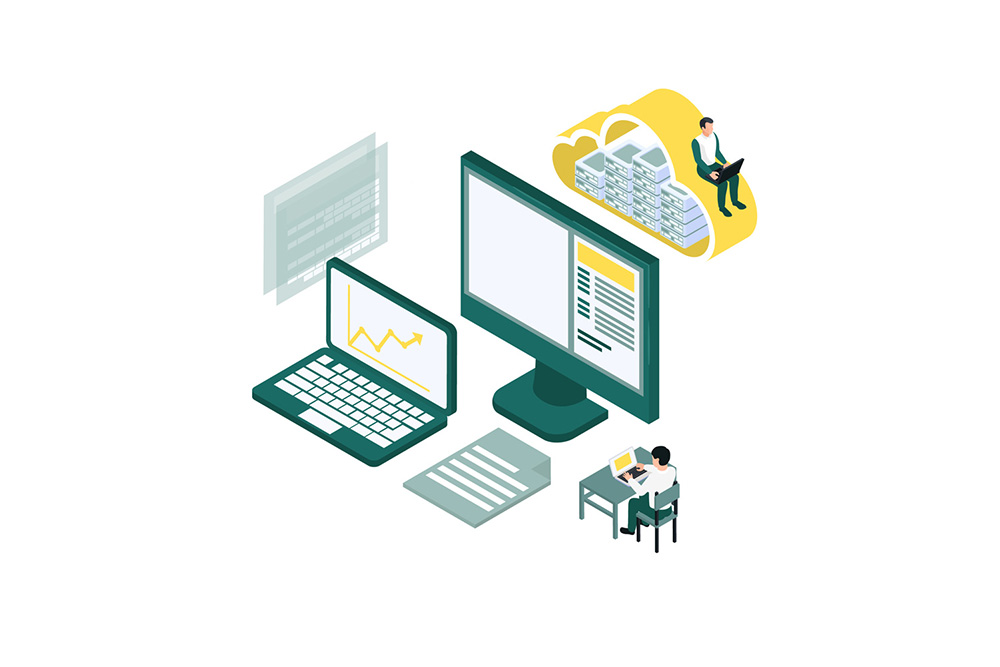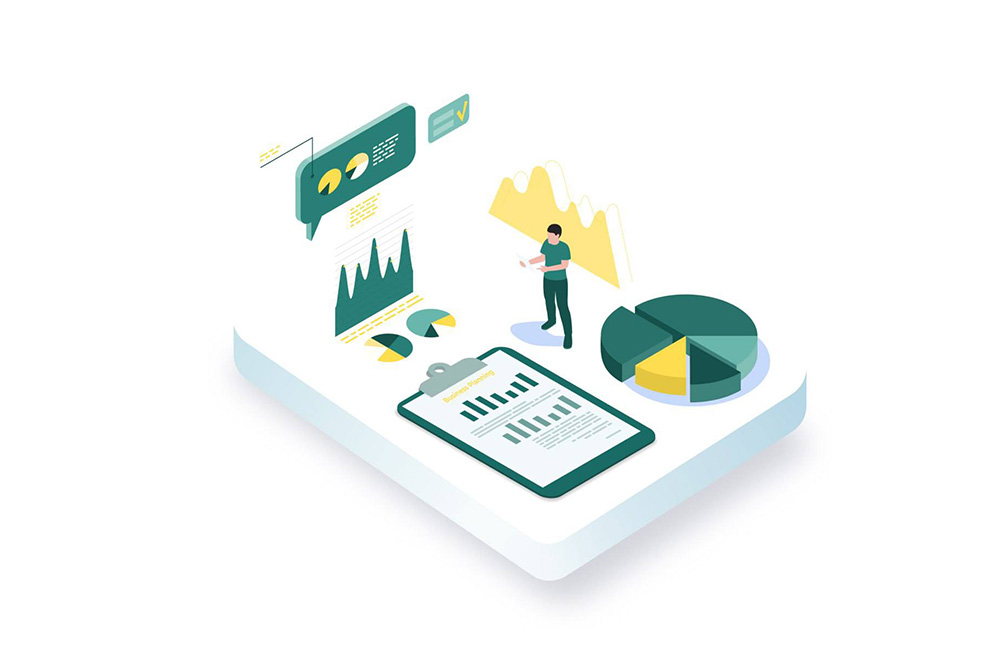
What is Enterprise Resource Planning?
At its heart, an Enterprise Resource Planning (ERP) system is an integrated application suite designed to streamline and manage core business processes across various departments. ERP is the central hub of operations, from finance to HR, procurement to supply chain management, ensuring connection and real-time data flow across the enterprise.
Understanding ERP systems
ERP systems are the connecting link of various business processes, offering a unified data source that enhances decision-making and operational transparency. Examples like Oracle Cloud ERP and NetSuite ERP showcase the adaptability of ERP solutions across diverse sectors, underlining their universal applicability.
The Business Value of ERP: Beyond Integration
- Operational Excellence: By consolidating disparate systems, ERP enterprise resource planning software overpowers inefficiencies, fostering a streamlined operational framework.
- Strategic Decision-Making: Access to real-time data analytics empowers leaders to make informed, strategic decisions quickly and effectively.
- Cost Efficiency: Enhanced operational efficiency translates into significant cost savings across the board.
- Growth and Scalability: Cloud ERP solutions, in particular, offer unparalleled scalability, ensuring that your ERP ecosystem grows in tandem with your business.
The role of ERP Implementation in Transforming Business Operations
In the context of revolutionizing industry operations with ERP systems, the ERP implementation process stands as a critical crossroad where strategic planning meets technological innovation. This phase demands careful attention to detail, starting from a complete needs assessment that aligns with your business objectives, through to the detailed selection of a robust ERP platform such as NetSuite ERP. The process unfolds through stages of customization, data migration, and comprehensive user training, ensuring that the ERP solution seamlessly integrates into the fabric of the organization. Throughout this journey, challenges such as data integrity, user adoption, and system scalability are navigated with precision, ultimately setting the stage for a transformed, efficient, and cohesive business ecosystem.
Hundred MS and ERP: A Symphony of Expertise
At Hundred MS, our skills in financial advisory and corporate consulting intersect seamlessly with the world of ERP. We guide businesses through the complex labyrinth of ERP implementation, ensuring that the chosen solution aligns perfectly with their strategic goals and operational needs. Our expertise extends to optimizing ERP frameworks, such as NetSuite ERP, to unlock their full potential, driving efficiency, and fostering sustainable growth.
ERP in Action: Industry-Specific Transformations
- Manufacturing: From optimizing production lines to seamless inventory management, ERP brings precision and efficiency to manufacturing processes.
- Retail: ERP systems enhance retail operations by improving inventory control, customer engagement, and e-commerce integration.
- Healthcare: In healthcare, ERP solutions streamline patient management, billing, and compliance, ensuring better patient outcomes and operational efficiency.
Exploring ERP Deployment Models
- On-Premises ERP: The traditional model, requiring substantial initial investment but offering complete control over the infrastructure.
- Cloud-Based ERP: Offers a flexible, cost-effective solution with the ERP system hosted on the vendor’s servers, providing ease of access and minimal IT overhead.
- Hybrid ERP: Combines the best of both worlds, allowing businesses to tailor their ERP solutions to their specific needs and circumstances.
Spotlight on Cloud ERP: The Future Is Here
The advent of cloud ERP marks a paradigm shift in how businesses approach their ERP solutions. With advantages such as reduced upfront costs, superior flexibility, and “anywhere, anytime” access, cloud ERP like Oracle Cloud Enterprise Resource Planning is becoming the go-to model for forward-thinking enterprises. This model not only simplifies IT infrastructure, it also enhances collaboration and innovation by leveraging the cloud’s inherent agility. This preference is driven by the cloud’s ability to offer scalable, secure, and cost-efficient ERP solutions, ensuring businesses remain agile and competitive in a rapidly evolving market landscape.
Conclusion
ERP systems, especially those leveraging cloud technology, are at the frontline of driving business efficiency and innovation. As we advance, integrating ERP solutions like Oracle Cloud ERP and NetSuite ERP into the core operations of businesses across sectors will be paramount. At Hundred MS, we are committed to empowering businesses with the insights and tools they need to harness the full potential of ERP, ensuring they remain at the cutting edge of operational efficiency and strategic growth.
FAQs on Enterprise Resource Planning
- How does an ERP system improve business operations?
An ERP system enhances business operations by integrating various functions into a single system, improving data accuracy, facilitating better decision-making, and increasing efficiency by eliminating redundant processes. It allows for real-time data analysis, helping businesses to respond quickly to market changes and internal demands.
- What are some examples of ERP software?
Examples of ERP software include Oracle Cloud Enterprise Resource Planning, NetSuite ERP, SAP ERP, and Microsoft Dynamics. These platforms offer a range of functionalities tailored to different business needs and sectors.
- What does ERP implementation involve?
ERP implementation involves several steps, including requirement analysis, system selection, project planning, system customization, data migration, user training, and system testing. Successful implementation requires careful planning, clear communication, and ongoing support to ensure the system meets the organization’s needs.
- How do ERP systems work with other business applications?
ERP systems can integrate with other business applications through APIs (Application Programming Interfaces) or middleware. This integration allows for seamless data exchange and process automation across different software platforms, enhancing overall operational efficiency.
- What is the future of ERP systems?
The future of ERP systems lies in increased cloud adoption, enhanced analytics capabilities, more intuitive user interfaces, and greater integration with emerging technologies like AI, IoT, and blockchain. These advancements will make ERP systems even more versatile and valuable tools for businesses.




Hey! I wanted to take a moment to thank you for your outstanding blog post. It was incredibly informative and well-researched. Your passion for sharing knowledge is evident and highly appreciated. Excited to see what you’ll share next!
Great introduction to ERP! You’ve clearly explained how Enterprise Resource Planning integrates core business functions into one system for better efficiency and decision-making. This post is perfect for anyone new to ERP and looking to understand its real value.